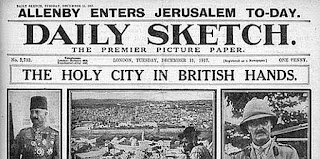“And of Joseph he said, Blessed of the Lord be his land, for the
precious things of heaven, for the dew, and for the deep that coucheth
beneath, 14 And for the precious fruits brought forth by the sun, and
for the precious things put forth by the moon, 15 And for the chief
things of the ancient mountains, and for the precious things of the
lasting hills…” Deuteronomy 33:13-15 KJV
The Hebrew word for “Precious things” (mentioned four times in these
verses) is
The “Ancient Mountains” and “Lasting Hills” mentioned in Deuteronomy 33 are
Mount Gadur, Mount Seir, Mount Hermon and Jebel Mubarak.
1. Mount Gadur (Gilead), part of the tribe of Manasseh, is 1.250 meters
high with 1,000 mm rain yearly. The rainwater fed the Jabbok and Yarmuk river.
2. Mount Seir (Southern Edom) is 1,700 meters high, with a yearly precipitation
of 400 mm.
3. Mount Hermon, 2.224 meters high
4. Jebel Mubarak (‘Blessed Mountain) was part of Edom.
These mountains received more dew, rain and snow than any other mountains
in eastern Israel.
Mount Hermon is known under different names:
a. Hermon – (Hebrew) – Sacred, holy mountain from early times. The Canaanites
called it Baal Hermon (Judges 3:3)
b. Mountain of the Sheikh (Arabic)
c. Senir (Amorites)
d. Sirion (Phoenicians)
– breastplate.
e. Snowy mountain
f. Gray-haired mountain
g. Mountain of Snow
e. Eye of the Nation – because of Israel’s military strategic early
warning system
 According to tradition, it was on Har Habtamim, on the slopes of Katef
Sion (part of Mt. Hermon) that God promised Abraham to give the land to his
descendants. An ancient tomb and oak tree were found at this spot. Hermon is also
believed to be the mountain where Jesus’ transfiguration took place as Jesus was
in the area of Caesarea Philippi with his disciples, which is near Mt. Hermon.
According to tradition, it was on Har Habtamim, on the slopes of Katef
Sion (part of Mt. Hermon) that God promised Abraham to give the land to his
descendants. An ancient tomb and oak tree were found at this spot. Hermon is also
believed to be the mountain where Jesus’ transfiguration took place as Jesus was
in the area of Caesarea Philippi with his disciples, which is near Mt. Hermon.
During the Six Day war of 1967, Israeli forces captured part of Mount
Hermon and the Golan Heights. Israeli citizens were finally safe after having
been harassed and murdered by Syrian snipers for 19 long years.
Mount Hermon, geographically separate from the Golan Heights, is the most
northern and highest point in Israel (2800 meters above sea level). The only skiing
site in Israel has a 620-meter vertical drop. Locals call it the only ‘real’
mountain in Israel – the others are seen as only high hills.
"Behold, how good and pleasant it is when brothers dwell in unity! It is
like the precious oil on the head, running down on the beard, on the beard of
Aaron, running down on the collar of his robes It is like the dew of Hermon, which falls on the mountains of Zion! For
there the Lord has commanded the blessing, life forevermore." Psalm 133 ESV
Mount Hermon has the honour of being THE mount of dew amongst Israel’s
mountains.
Because of its height, the difference in day and night temperatures
create a high dew precipitation during the hot, dry summer months, while during
the rainy season (November – April) there is a lot of rain and snowfall. And then,
when the snow begins to melts, it will feed the springs and rivers merging into
the Jordan River and the Sea of Galilee.






















